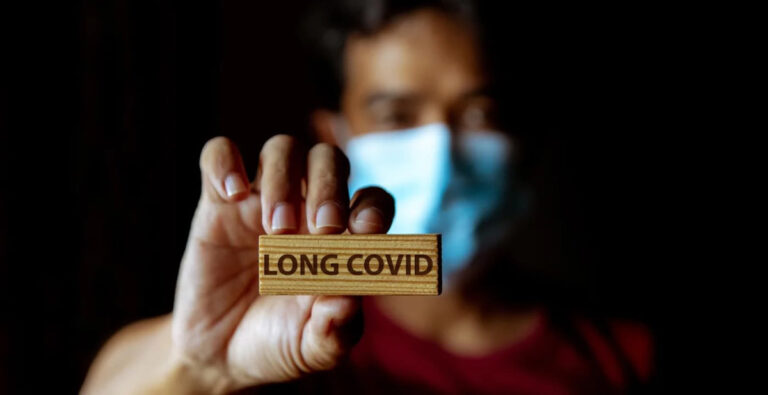Modafinil for Cancer Fatigue: A Look at Studies and Patient Stories
Cancer-related fatigue (CRF) is a relentless and debilitating symptom that affects many cancer patients during and after treatment. Unlike ordinary fatigue, it doesn’t improve with rest and can significantly diminish quality of life. Modafinil, known for its wakefulness-promoting effects, has emerged as a potential option for managing this persistent fatigue. Examining research on its effectiveness, alongside patient experiences, offers valuable insights into the benefits and challenges of using modafinil for CRF.
Understanding Cancer-Related Fatigue (CRF)
Cancer-related fatigue differs significantly from everyday tiredness. It is an overwhelming sense of exhaustion that is not alleviated by sleep or rest. CRF can stem from cancer itself, treatments such as chemotherapy or radiation, or a combination of both. For many cancer patients, fatigue can persist long after treatment has concluded, making daily tasks—like walking, working, or even socializing—feel impossible.
CRF affects multiple dimensions including physical energy, cognitive function, and emotional well-being. Patients may find it difficult to focus, experience mood swings, or feel too tired to participate in activities they once enjoyed. The severity of CRF varies, but it consistently reduces quality of life for those affected (Cooper et al., 2009).
Modafinil in Clinical Studies: What Does the Research Say?
Cooper et al. Review (2009)
Cooper and colleagues reviewed several studies on modafinil for CRF and found it generally well tolerated with potential benefits in reducing fatigue severity. Patients also reported improvements in cognitive function, mood, and general activity levels. However, many of these studies had limitations such as open-label designs and heterogeneous patient populations, making it difficult to generalize the findings (Cooper et al., 2009).
Jean-Pierre et al. Randomized Controlled Trial (2010)
A large, multicenter, placebo-controlled, double-blind trial by Jean-Pierre et al. found that modafinil significantly reduced fatigue in patients with severe baseline fatigue, but had no significant effect in those with mild or moderate fatigue. This highlights the importance of baseline fatigue severity in predicting treatment response and supports modafinil use primarily in patients with severe CRF (Jean-Pierre et al., 2010).
Wirz-Justice et al. Study (2010)
Wirz-Justice et al. described the multifactorial causes of tumor fatigue, including biological and treatment-related factors. They noted the off-label use of modafinil for CRF, with some positive outcomes in fatigue and cognitive function reported, but emphasized the need for more rigorous trials (Wirz-Justice et al., 2010).
Patient Experiences: Real-Life Stories with Modafinil for CRF
Patient anecdotes illustrate the variability in response to modafinil. For example, one patient adjusted their dose from 200 mg to 100 mg to balance improved daytime alertness with better nighttime sleep. Another stressed the importance of taking modafinil early in the day to avoid insomnia. These experiences highlight the need for individualized dosing and close medical supervision to manage side effects like insomnia, headaches, or nervousness, consistent with known side effect profiles described in the FDA prescribing information (FDA, 2015).
Challenges in Using Modafinil for CRF
- Variable Patient Response: Studies show wide variability in efficacy. While some patients experience significant improvement, others may see no benefit or develop side effects that limit use (Jean-Pierre et al., 2010; Cooper et al., 2009).
- Side Effects and Dosing: Insomnia, headaches, and nervousness are common side effects. Careful timing and dose adjustment are critical to minimize these effects (FDA, 2015).
- Limited Evidence Base: Though promising, evidence is not yet robust enough for routine recommendation, and further randomized controlled trials are needed (Cooper et al., 2009; Wirz-Justice et al., 2010).
Conclusion
Cancer-related fatigue is a complex, multidimensional condition that severely impacts patients’ quality of life. Modafinil offers a potential therapeutic option, particularly for those with severe fatigue not responsive to other treatments. While clinical trials and patient reports suggest benefits, variability in response and side effects necessitate personalized treatment approaches and further research to define optimal use.
References
- Cooper, M. R., Bird, H. M., & Steinberg, M. (2009). Efficacy and safety of modafinil in the treatment of cancer-related fatigue. Annals of Pharmacotherapy, 43(4), 721–725. https://doi.org/10.1345/aph.1L532
- Jean-Pierre, P., Morrow, G. R., Roscoe, J. A., Heckler, C., Mohile, S., Janelsins, M., Peppone, L., Hemstad, A., Esparaz, B. T., & Hopkins, J. O. (2010). A phase 3 randomized, placebo-controlled, double-blind, clinical trial of the effect of modafinil on cancer-related fatigue among 631 patients receiving chemotherapy: A University of Rochester Cancer Center Community Clinical Oncology Program Research base study. Cancer, 116(14), 3513–3520. https://doi.org/10.1002/cncr.25083
- U.S. Food and Drug Administration. (2015). PROVIGIL® (modafinil) tablets, for oral use, C-IV [prescribing information]. U.S. Department of Health and Human Services. https://www.accessdata.fda.gov/drugsatfda_docs/label/2015/020717s037s038lbl.pdf
- Wirz, S., Nadstawek, J., Kühn, K. U., Vater, S., Junker, U., & Wartenberg, H. C. (2010). Modafinil zur Behandlung der Tumorfatigue: Eine Interventionsstudie [Modafinil for the treatment of cancer-related fatigue: An intervention study]. Schmerz, 24(6), 587–595. https://doi.org/10.1007/s00482-010-0987-y
- Greenblatt, K., & Adams, N. (2023). Modafinil. In StatPearls. StatPearls Publishing. https://www.ncbi.nlm.nih.gov/books/NBK531476/








